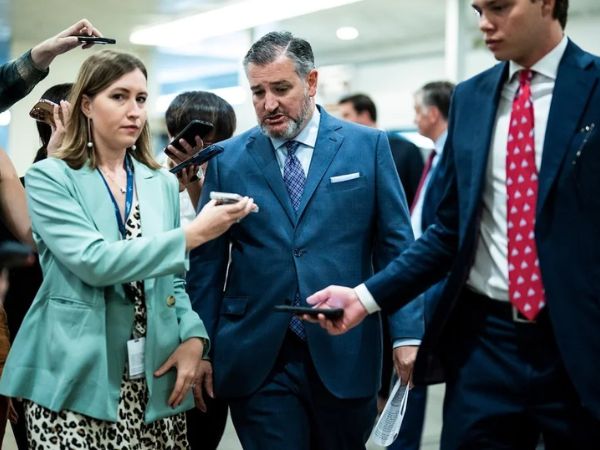
Introduction
Republican lawmakers on Wednesday are proposing legislation to block children from using social media in school, preventing access to the platforms on poorer schools’ networks that receive federal broadband subsidies, the latest in a growing crop of bills to bar younger users from sites such as TikTok and Instagram.
Our lives now revolve around social media, and schools are no exception. Students utilize social media to express themselves, learn new things, and remain in touch with friends and family. The propagation of false information, addiction, and cyberbullying are some of the potential negative consequences of social media on students that have raised some worries. Social Media
There has been a growing trend to restrict social media use in schools in recent years. Republicans, who contend that social media is a distraction and may be detrimental to students’ mental health, are mostly driving this push.
The Republican Proposal
A group of Republican senators filed a bill on October 18, 2023, that would mandate social media blocking in schools for them to receive federal broadband subsidies. Senators Ted Budd (R-NC) and Ted Cruz (R-TX) are the bill’s sponsors.
The E-Rate program, which provides federal assistance to help schools and libraries afford broadband internet connection, would be modified by the proposed legislation. Schools are already required by the E-Rate program to restrict pornography and other hazardous information, but not social media. Republican Proposal
The Republican plan would mandate that all social media sites, including Facebook, Twitter, Instagram, TikTok, and Instagram, be blocked in schools. Failure to comply would result in schools losing their E-Rate funding. Social Media
Arguments in Favor of Blocking Social Media in Schools
Republican measure proponents contend that social media diverts pupils’ attention and may even be detrimental to their mental health. They cite research demonstrating that using social media is linked to higher levels of anxiety, despair, and loneliness.
Social media can be used for cyberbullying and the dissemination of false information, according to the bill’s supporters. They cite recent instances where students were subjected to damaging social media postings or cyberbullying. Republican Proposal
Arguments Against Blocking Social Media in Schools
The Republican bill’s opponents claim that prohibiting social media use in schools would deprive pupils of an important tool for communication and learning. They make the point that social media may be used to connect with classmates and professors, access educational resources, and remain up to date on current events. Republican Proposal
The bill’s opponents also claim that social media censorship would be challenging and ineffectual. They make the point that pupils would still have access to social media outside of school and that there are several ways to get around internet filters.
Schools and libraries are not permitted to participate in the current program’s advantages unless they demonstrate that they have an “Internet safety policy” that includes safeguards against child pornography and other objectionable or dangerous content. Republican Proposal
Additionally, under the new legislation, program sponsors would have to establish guidelines that would cap the amount of screen time that children might spend doing their homework. The Emergency Connectivity Fund, a separate federal subsidy scheme tucked away in a $1.9 trillion coronavirus stimulus package passed by Congress in 2021, would also be subject to the limits.
Conclusion
The debate over whether or not to block social media in schools is complex and there are strong arguments on both sides. It is important to weigh the potential benefits and drawbacks of blocking social media before making a decision.
The Republican bill will probably struggle in Congress. There are no Democratic co-sponsors for the bill, and it’s not certain whether Republicans will support it enough.
Even if the legislation were to pass Congress, it would probably face legal challenges. The bill’s opponents contend that it would infringe upon students’ First Amendment rights.
In the years to come, there will probably still be discussion about the use of social media in schools. As social media platforms develop, it is crucial to have an in-depth discussion about how to best safeguard kids while still enabling them to make use of social media’s advantages. Republican Proposal